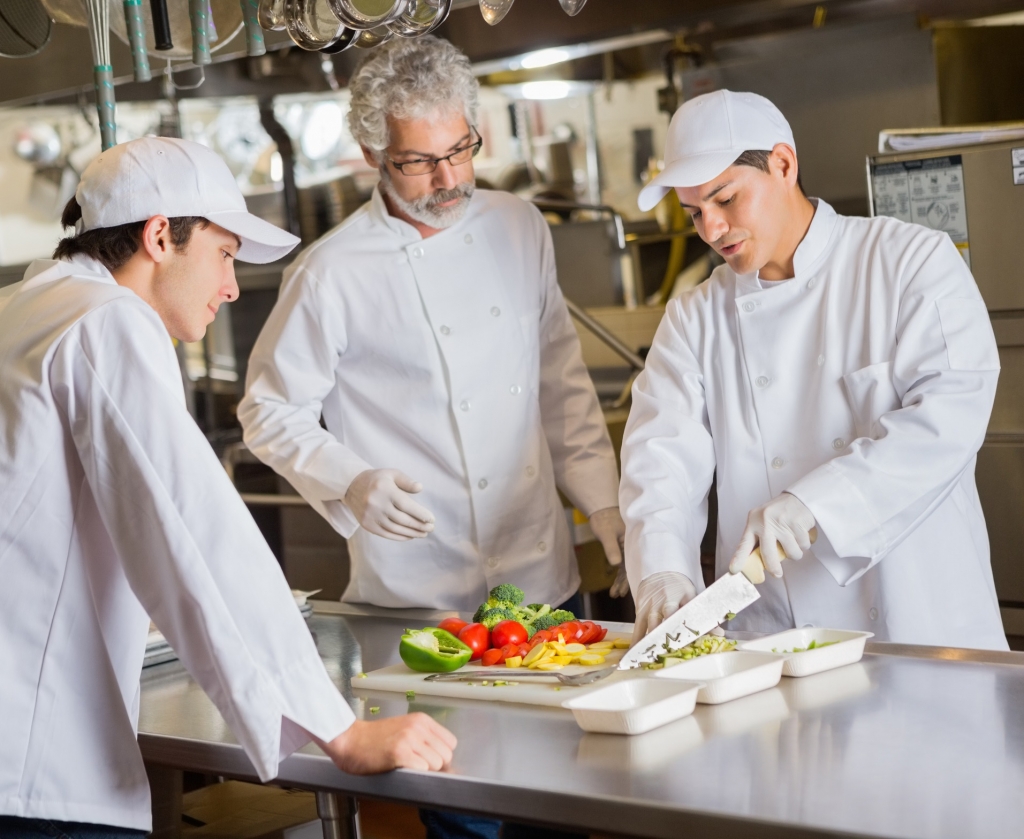A Comprehensive Guide to Earning Your food manager certification texas Today
A Comprehensive Guide to Earning Your food manager certification texas Today
Blog Article
Boost Your Job Opportunities: Why a Food Trainer Certification Is a Must-Have in the Culinary Industry
In today's competitive cooking landscape, the significance of a food handler certification can not be overstated. As restaurants and food solution establishments increasingly focus on qualified staff, experts outfitted with this certification stand to get a considerable advantage.
Value of Food Safety
In the culinary market, the relevance of food safety can not be overstated. Making certain the safety of food is vital for securing public wellness and keeping customer trust. Contaminated food can result in significant wellness problems, consisting of foodborne illnesses, which can influence people and bring about significant liability for food establishments. Therefore, carrying out rigorous food safety methods is vital for any kind of culinary operation.
Food safety and security includes a variety of procedures, consisting of appropriate food handling, storage, food preparation, and offering techniques. Following these techniques not just reduces the threat of contamination yet likewise helps in abiding by regional health laws. Appropriate training in food safety makes it possible for culinary specialists to identify prospective hazards and carry out preventive actions successfully.
Additionally, a solid commitment to food safety and security can improve the credibility of a cooking establishment, cultivating customer commitment and company development. Consumers are significantly knowledgeable about food safety and security issues, making it essential for food handlers to show their adherence to ideal methods. Inevitably, prioritizing food safety and security is not just a regulative need; it is a fundamental element of providing high quality food solution and protecting the wellness of consumers.

Certification Demands
Food safety and security practices are only as efficient as the people implementing them, making accreditation a crucial action for food handlers in the culinary sector. To obtain a Food Handler Certificate, candidates have to generally complete a training program that covers necessary subjects such as foodborne illnesses, sanitation, personal hygiene, and risk-free food dealing with methods.
Most certification programs are designed to accommodate numerous finding out designs, providing options for online, in-person, or crossbreed layouts. Participants should pass an exam to demonstrate their understanding of the material, with a minimal passing rating usually established at 70%.
The period of training can differ, with some programs calling for only a couple of hours, while others may cross a number of days. After successfully completing the training course and test, prospects get their accreditation, which is typically valid for 3 to 5 years, depending upon regional policies.
Renewal often entails taking back the program or completing a refresher course program to make sure that food handlers stay upgraded on the most recent methods and standards. Conformity with these accreditation requirements not just improves individual knowledge yet likewise adds to the general safety and quality of food solution operations.
Work Market Demand
How has the task market for food handlers advanced in recent years? The demand for food trainers has dramatically boosted, largely driven by the expanding awareness of food safety and security and click resources hygiene amongst consumers and governing bodies. With the increase of foodborne illnesses, restaurants, providing solutions, and food manufacturing business are focusing on the hiring of licensed food trainers to guarantee conformity with health guidelines. This shift has led to an increased focus on food safety training and qualification as prerequisites for employment in the cooking industry.
Furthermore, the increasing dining establishment sector, especially with the appearance of food shipment services and food vehicles, has produced an abundance of job opportunities for food trainers. The requirement for experienced workers that can safely prepare and manage food has actually become critical. servsafe food handler certificate. Furthermore, as cooking organizations adopt more stringent safety protocols, the value of a food handler certificate has risen, making it a vital asset for job candidates
Because of this, individuals entering the culinary labor force are official source locating that getting a food trainer certification not only enhances their employability but also places them positively in an affordable task market that progressively prioritizes food safety and health criteria.
Benefits of Qualification
Acquiring a food handler certification provides countless advantages that significantly boost an expert's standing in the cooking market. Firstly, it shows a commitment to food security and hygiene, which is vital in stopping foodborne illnesses. This qualification gears up people with important expertise concerning risk-free food handling methods, consisting of proper storage, cooking temperature levels, and sanitation procedures
In addition, possessing a food handler certification can boost an individual's employability. Lots of companies prioritize candidates with this accreditation, watching it as an indicator of expertise and competency. This can result in much better work possibilities and potentially higher earnings, as qualified people are typically left with greater obligations.
In addition, the certification promotes a society of safety and security and accountability within the work environment. It not just enhances an employee's confidence in their skills however additionally advertises a safer atmosphere for clients and colleagues alike. Lastly, maintaining a food handler certification can open doors to more academic and occupation development chances within the culinary area. Overall, this accreditation is a calculated investment that benefits both specialists and the facilities they offer, eventually adding to a thriving cooking sector.
Steps to Obtain Licensed
Acquiring a food trainer certificate involves an uncomplicated process that can set people on a path to enhanced job potential customers in the culinary sector. The primary step is to locate a recognized program or training company that provides food safety and security programs. Many companies supply both in-person and online alternatives, More Help enabling for adaptability in knowing.

After effectively passing the test, people will certainly obtain their food handler certification, which is commonly valid for a particular duration, generally three to five years. To keep qualification, it might be required to complete correspondence course or retake the exam prior to the expiration day.
Finally, it's crucial to confirm any neighborhood or state-specific guidelines concerning food handler qualification, as demands can differ. By complying with these steps, people can obtain their qualification and considerably improve their employability in the affordable culinary landscape.

Final Thought
In final thought, acquiring a food trainer certificate is important in the culinary market, as it guarantees adherence to food safety standards and boosts employability. With the expanding need for licensed personnel, this credential not only opens up doors to work possibilities however likewise contributes to job innovation and boosted making potential. Inevitably, a food trainer certificate signifies a dedication to security and professionalism and trust, promoting a society of responsibility that benefits both staff members and companies in the food service field.
Report this page